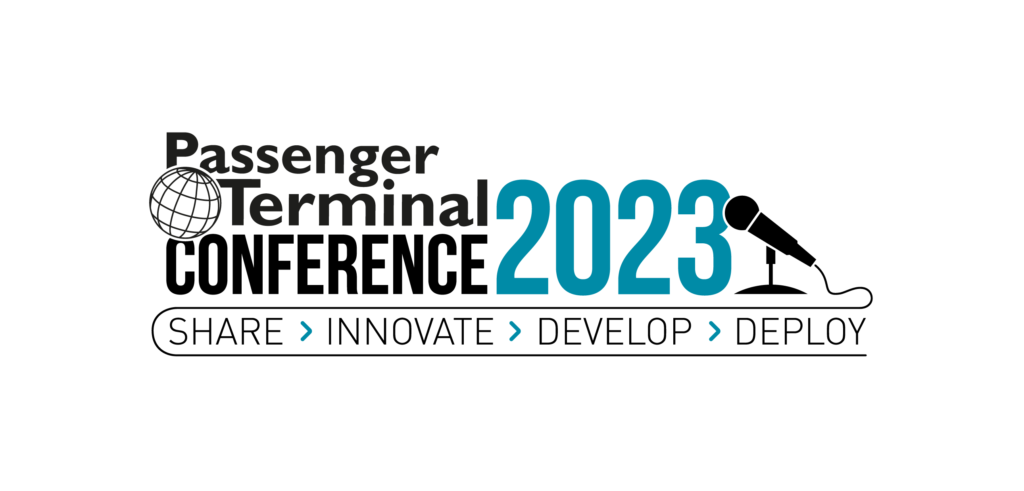 Deborah Flint, CEO of Toronto Pearson, took part in the ‘Back to the future and beyond – a view from the top’ panel in the ‘Future airports’ track on Day 1 of Passenger Terminal Conference. In this discussion, the panel spoke about the importance of maintaining a good relationship between airlines and regulators, as well as key insights into future models of airport authorities. Alongside this, conference attendees were also privy to the practices that Toronto Pearson Airport has created to manage risks – like new scenario planning and enhanced seasonal scheduling.
Deborah Flint, CEO of Toronto Pearson, took part in the ‘Back to the future and beyond – a view from the top’ panel in the ‘Future airports’ track on Day 1 of Passenger Terminal Conference. In this discussion, the panel spoke about the importance of maintaining a good relationship between airlines and regulators, as well as key insights into future models of airport authorities. Alongside this, conference attendees were also privy to the practices that Toronto Pearson Airport has created to manage risks – like new scenario planning and enhanced seasonal scheduling.
What was your presentation about?
“We exchanged views on how to immediately make our industry more reliable, predictable and enjoyable. These objectives are for passengers and employees alike. The traveling public is accustomed to their everyday commercial transactions being fulfilled with sufficient information and certainty, and they have the same expectations with air travel. I offered insights on our airport’s challenges of recovery, while simultaneously driving a vision for a modernized airport system that the public and government can understand and champion.”
What did the audience learn?
“The audience experienced a lively discussion from my esteemed co-panelists as we discussed a wide range of topics, with differing viewpoints. I shared the practices that we at Toronto Pearson Airport have created to manage risks – like new scenario planning and enhanced seasonal scheduling. No airport panel would be complete without discussing the evolving relationship between airlines and regulators and what should change in the various models of airport authorities. Toronto Pearson is home to more than 400 companies and agencies, and communication and cooperation among our commercial partners, communities and governments is integral to the airport’s success. In this panel, we talked about how we are approaching our relationships and agreements to build the airport of the future.”
In your view, what are the most important things for airports to be focusing on, post-pandemic?
“Airports have more, not fewer, things to focus on in the post-pandemic recovery. The recovery from years of financial loss is especially acute in Canada, and at the same time, more significant investments are required. There is more risk and volatility with labor shortages, more severe weather events, the transition to net zero and other sustainable practices that need attention. At the same time, there is a tremendous opportunity to make generational infrastructure investments and ensure an airport is an attractive place for all employees to have a fulfilling career.”
How important is digitization to creating a modernized airport system? What plans does Toronto Pearson Airport have to further this aspect in the future?
“Digitization is critical to creating a modernized airport – one that’s reliable, predictable and enjoyable for passengers. The pandemic revealed to us the extent of our technological capabilities and showed us that people are willing to use technology to replace in-person meetings with virtual ones. That is a strong impetus for the industry to modernize and remove the friction from travel. Continued labor shortages are pressuring almost every part of the travel system to use technology to streamline, create efficiencies and provide operational resiliency. As we look ahead, the immediate and next generation of passengers will expect more digital capabilities tailored to their needs. E-gates are now commonplace at almost every transaction point. Still, they need to be more consistently applied across airports and global hubs so there is an imperative to provide harmonized tokenless travel. For returning Canadian citizens and permanent residents with Nexus status, we introduced facial verification e-gates that offer an additional option for inbound Nexus travelers to expedite their arrival processing. Digital transformation impacts the operation, like our use of AI, which senses conditions that cause baggage system interruptions before they happen. Even as we seek to solve the acute challenges the industry is facing with the restart of air travel, we continue to work closely with government and industry partners on solutions that can further digitize our borders and our airport for a more seamless travel experience.”
How is the Greater Toronto Airports Authority working to include diverse groups of end users, partners and employees?
“At Toronto Pearson, we strive to create an environment where all of our people – our passengers, employees and partners – can be their authentic selves, participate fully in the economic impact of our industry and expect a travel experience that feels curated for their needs. In 2021, we created a strategic DEI plan comprising four pillars: leadership commitment and accountability, fair and equitable people practices, inclusive culture, and strong community partnerships. To help our leaders become better allies to their colleagues and team members, we implemented an inclusive leadership training course that provides individuals with the skills to promote transparency, recognize and tackle bias, embrace DEI and leverage diverse thinking to drive innovation.
“Additionally, we have introduced several employee resources groups to support individuals across all areas of the organization as safe spaces where lived experiences can be shared. These groups include the Black Professionals Network, Sky’s the Limit (focused on accessibility), the Women’s Alliance, and Rainbow Runway (for our 2SLGBTQ+ community). We have developed a DEI [diversity, equity and inclusion] dashboard to understand our organization better and ensure we are challenging systemic discrimination. This has allowed us to see a year-over-year increase across all equity-deserving groups, bringing us closer to the labor market availability targets outlined by the government of Canada. We have also taken a more visible and active approach in the community by signing the BlackNorth Initiative CEO Pledge in July 2020. And we have invested in black, Indigenous and people of color (BIPOC) organizations through our Propeller Project program.
“To achieve our strategic goals, we intend to conduct business with suppliers who demonstrate our core values of DEI, who actively engage in sustainable practices, and who are advancing innovation and continuous improvement while demonstrating excellence in service and performance.”
To hear more valuable industry insights from top aviation executives, it’s not too late to book a conference pass for Passenger Terminal Conference, March 14, 15 and 16, in Amsterdam, Netherlands


